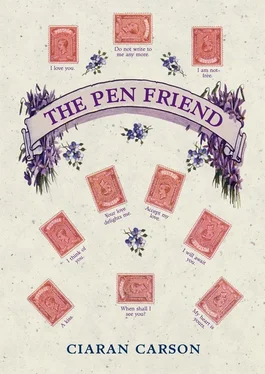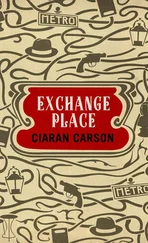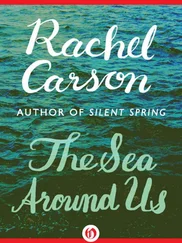I stared at him, then at you, dumbfounded. I’d been trying to place him — the face was familiar, but the name eluded me — and now all that ran through my mind was Miranda, Miranda, Iris, Rainbow, and I stood not hearing your conversation, as the police band music dimmed and swelled around it through the buzz of the crowd. I felt weak. Miranda. In a kind of trance I noted his clothes, the charcoal chalk-stripe suit, a little heavy for the weather, but nicely cut, the blue silk tie with a muted silvery grey diamond pattern, the faint blue herringbone shirt, a legal kind of look. He had cupped his hand to his chin and was smiling at whatever you were saying, I caught a glimpse of a cuff and cuff-link, a black stone set in silver, and then, turning to me, he said, And you, Gabriel, still in the Gallery? I nodded. You? Oh, communications, that kind of thing, we should get together some time, I’ll tell you all about it, but for now, must dash, do let’s keep in touch. Gabriel. Miranda. And he vanished into the crowd.
Well, I said to you, so what’s all this? Miranda, I said with heavy irony. Or Iris. Or whatever you might be. Oh, Angel, you said, don’t be silly, you’re not upset, are you? And I put my hands in my pockets and lowered my head and pouted my lip in a classic huff, and said nothing. But Angel, you said, what should it matter what I’m called? And am I not Rainbow, anyway? No, I brought myself to say, how can you be Rainbow, when you’re Miranda? If Miranda you are. Or did you lie to him? And then it came back to me who he was; he was Tony Lambe — Baa, we called him, he’d been in my year at university, but he’d dropped out and gone to London, what, eleven, twelve years ago, he certainly seemed to have gone up in the world. Miranda’s the name on my birth certificate, you said, but so what? Well, you didn’t tell me the truth, that’s what, I said. You didn’t tell me your name. No, you said, it was you who told me, remember? And weren’t you pleased that you were able to tell me my name? I was pleased that you were pleased, so I let it go. I quite liked being Iris. And then, with vehemence, you said, Why should we be bound by our names? Can’t we be anyone we please to be?
I’m still writing this with the Merlin pen. Merlin the bird of prey, the little falcon, merlin that is related to the French or Scots word merle, a blackbird, Merlin the wizard and the architect of Camelot. To be precise, it’s a Merlin 33 — I have another Merlin, in marbled grey and black swirls, called Merlin Elegant — and when I first got the 33 I wondered if this number were chosen for some esoteric or cabalistic significance. Pythagoras says that the world is built on the power of numbers: I discovered that in classic numerology the numbers 11, 22 and 33 are master numbers, not to be reduced to a single digit if they correspond to an individual’s name, and that the number 33 is that of avatar. More interestingly, I learned that the Merlin was the last of a series of aircraft engines designed by Rolls-Royce, which included the Kestrel and the Buzzard; that versions of the Merlin engine had powered the Hurricane and Spitfire aircraft that were instrumental in winning the Battle of Britain; and that the Merlin 33, specifically, had been used in the De Havilland Mosquito night-fighter and reconnaissance aircraft which made forays into Dutch and German territory during the latter course of the war. It had also been used as a transport aircraft for the Dutch Resistance. So it was entirely possible that the Merlin 33 fountain pen, designed in the Netherlands in 1948, the year of my birth and of Arie Bouwer’s marriage to Nell Birtwhistle, was a tribute to those missions, and to the engine which made them possible. The pen as bird of prey, the pen as aerial observer and communicator. And I wondered what connection your father — Harry the spy, as he was known to some — might have had with all this.
I discovered after some hours searching the Internet that on 11th April 1944 a group of six De Havilland Mosquitoes of 2 Group, 2nd Tactical Air Force, armed with five-hundred-pound incendiary/high explosive bombs, flew to The Hague. Their target was the Gestapo-controlled Dutch Central Population Agency, which PAN had ordered to be destroyed to prevent identification of the false IDs that were so crucial to their clandestine operations. The Agency was located beside the Peace Palace, which, as home to the Court of International Justice created by the League of Nations in 1922, enjoyed extra-territorial status, and was not considered to be part of the Netherlands. Great precision was required on the part of the bombers. In the event, the pilot of the second Mosquito reported that he clearly saw the bombs dropped by the first skip in through the doors of the target. The Peace Palace was unscathed, and the Mosquitoes, powered by their Merlin 33 engines, escaped with only minor damage to one aircraft. The Agency was totally destroyed, and with it the official identities of the entire Dutch population. In a footnote to the article which detailed this information, the name of the PAN agent who passed on the order was given as ‘Harry’.
So what’s in a name? you said. A rose by any other name, is that it? I said. It was true, I had felt rather pleased with myself when I named you; and now I realised the emptiness of that gesture. I’m sorry, I said. Rainbow. Miranda. The police band was playing ‘Pack Up Your Troubles’, and, as the chorus came round, we both burst into song together, Pack up your troubles in your old kit bag, and smile, smile, smile. And smile we did, if a little wryly. But I felt that both of us had betrayed ourselves, that we had participated a mutual confidence trick. And I didn’t know whether to call you Rainbow or Miranda. Both seemed somehow false now.
Some days later I called into Isaac Beringer’s antique shop in Winetavern Street. I’ve known Beringer for almost as long as I can remember, and he doesn’t look much older than he did when I was a child, when I was introduced to him by my father. Beringer has a photographic memory, and knows not only the present contents of his shop, but can relate the history of every piece, clocks, watches, pendants, snuff-boxes, rings, spoons, anything that has passed through his hands over the years, its provenance, its defining characteristics, its current market value. I once asked him how he did it. Oh, it’s very simple, Mr Gabriel, he said. I’ve been born into this shop — and it was true, his father, Isaac the Elder, had kept the shop before him — and I know it as well as myself. Better, maybe. Every display case, every shelf, every drawer, every cubbyhole — and he gestured around him — I can see them with my eyes shut. And I know where everything is. Where everything was. I’ve got them all filed away. You might say they’re like people, and I remember their faces, and I have little stories for them, so one reminds me of another, the way you say so-and-so is like so-and-so. Take this piece, for example — and here he picked up a silver snuff-box — nice box, made by David Pettifer in Birmingham, 1854. Year of the Crimean War, Charge of the Light Brigade, got it last week for a song in the Friday Market. And I see this snuff-box in the pocket of an English officer, a tall man with big moustaches, you’d know him anywhere. In another pocket he’s got his father’s watch, nice movement by Barwise, 1790s, I sold it six months ago. You see how it works? I just make up stories about them.
But the watch wouldn’t have been in the officer’s pocket before you had the snuff-box, I said. No, said Beringer, I had another story for the watch then, involved an antique pistol, the case had a little dent in it when I got it, so I thought maybe there’s been a duel, the watch belongs to this brash youth, you know the sort, all piss and vinegar, and the other chap’s bullet hits the watch, youth escapes unscathed, you know the kind of thing that happens in stories. Or sometimes in real life, I said. True, said Beringer. That’s why the stories change. Because things in real life change all the time, even when they stay the same. Depends on the way you look at them.
Читать дальше












